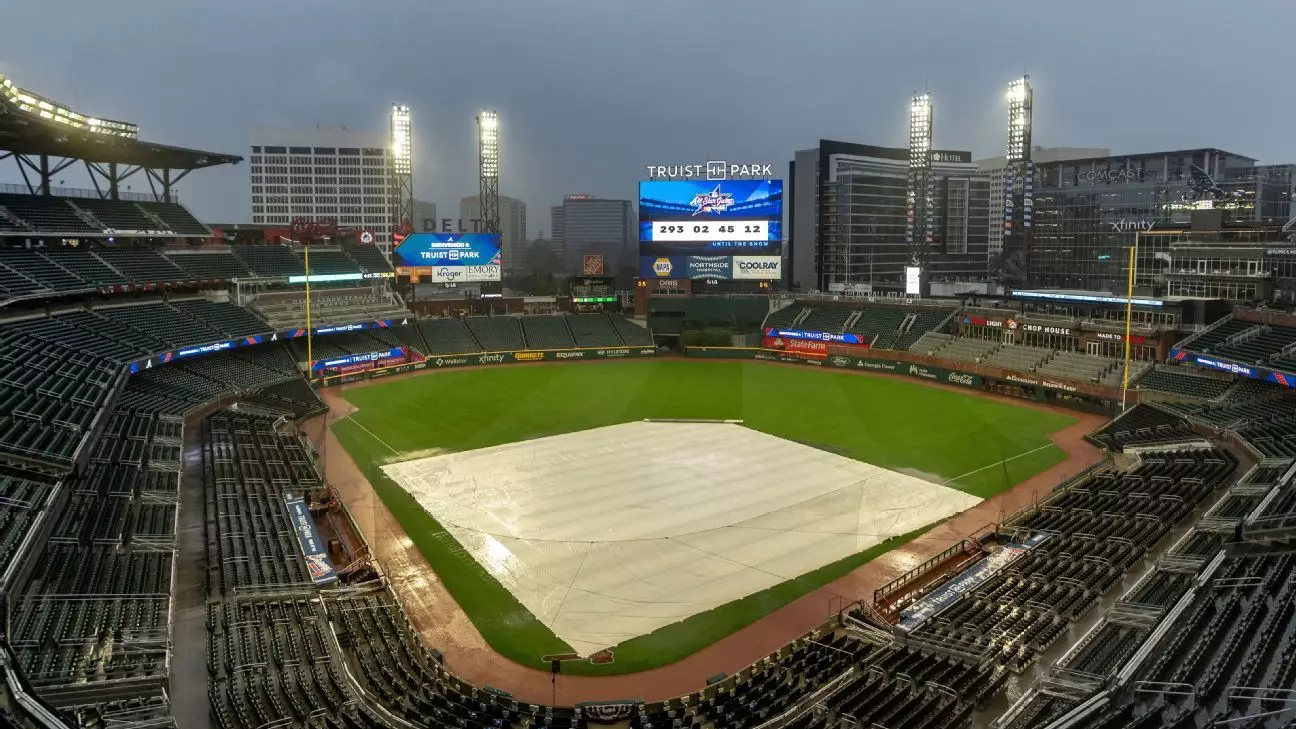In the realm of Major League Baseball (MLB), weather conditions often influence game schedules and outcomes in unpredictable ways. A recent example is the postponement of the final two matches in an important series between the New York Mets and the Atlanta Braves, primarily due to the impending arrival of Hurricane Helene. These cancellations not only interrupted the excitement of the wild-card race but also forced the teams into a situation where they must adjust their strategies significantly with limited time remaining in the regular season. This incident raises questions about the interplay between external conditions, team dynamics, and playoff aspirations.
Adjusting to the Situation: Team Mentality and Strategy
As the playoff picture becomes clearer, it becomes imperative for teams to adapt rapidly to changing circumstances. For the Mets, the postponement means shifting focus toward the final three-game series against the Milwaukee Brewers, the National League (NL) Central champions. Manager Carlos Mendoza emphasized the need to “control the things we control,” suggesting that the team is committed to self-regulation, regardless of external disruptions. His words reflect the necessity of a single-minded focus on winning, even as the weather and schedule conspire to create chaos. The mental fortitude developed in such situations could prove invaluable in the high-stakes environment of the playoffs.
On the other hand, the Braves, who are competing closely with the Mets and the Arizona Diamondbacks for the final playoff spots, also find themselves grappling with uncertainty. Their weekend series against the Kansas City Royals is clouded with concern as they prepare for the impacts of the hurricane. The managerial comments from Brian Snitker indicate a keen awareness of the broader implications beyond just the immediate games, showcasing how external pressures can shape a team’s mindset.
If the Mets and Braves remain embroiled in their tight race, the necessary doubleheader in Atlanta could have significant ramifications for both teams. Under current circumstances, they may need to compete in a back-to-back series on a Monday, putting further stress on their already stretched rosters. This grueling schedule could affect pitching rotations, bench depth, and overall performance during the playoffs, where every game counts intensely. The likelihood of travel fatigue complicates matters further, especially with the immediacy of the wild-card round set to begin just a day later.
The unique challenges presented by weather disruptions also highlight the often-unseen intricacies involved in playoff qualification. With other teams, such as the Diamondbacks, completing their schedules in a more linear fashion, the Mets and Braves could find themselves disadvantaged despite their similar standings. Ultimately, how these teams navigate through these weather-related adversities could dictate their success— or lack thereof— when they confront their playoff competition.
Despite the tumultuous circumstances, there may be hidden advantages in the disruption caused by the cancellations. For example, the unexpected days off could allow players to recuperate from minor injuries, thereby increasing their effectiveness in upcoming games. Mendoza noted this potential upside, suggesting that a fresh bullpen might significantly alter their competitive edge.
However, these postponed games underscore the reality of a compressed timeline. If the wild-card race necessitates further effort in navigating an unexpected doubleheader, the psychological strain on players may adversely affect their performance. The resilience to bounce back after a setback, like a postponed match, becomes vital as teams strive for a final shot at playoff glory.
The intersection of weather disruptions and playoff aspirations can create a volatile environment for teams like the Mets and Braves. As they find their path toward the postseason defined by unexpected circumstances, the balance between strategy, adaptability, and player wellness will be paramount. With the stakes raised, the ability to embrace uncertainty could just be the determining factor between playoff success and disappointment— a reality that embodies the unpredictable spirit of baseball itself.

